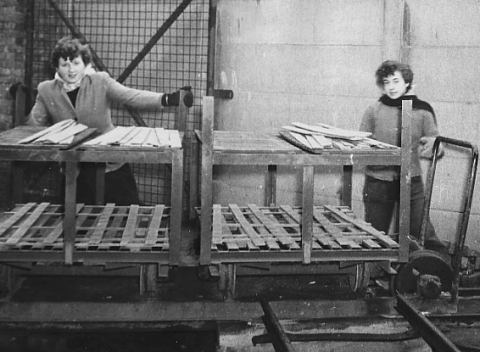
Mission
The EHLN working group Feminist Labour History aims at creating and expanding existing, more or less formal and informal contacts and networks of scholars with an interest in gendered labour history in Europe and around the world.
Scope
We would like to discuss research related to a broad range of themes and concepts in feminist labour history including but not limited to the following:
- the intersection of class, race, gender, global inequality, etc. in all thematic areas of labour history
- the global gendered division of labour
- the historical engendering of various types and forms of labour
- the historical evolvement of the relationship between paid and unpaid or subsistence-oriented work
- commodification and decommodification of domestic and care work
- the role gender has played in shaping labour law and practice of regulating labour and the impact of labour law and labour practices on gender and gender relations
- trade unions and gender locally, nationally and internationally
- the politics of “women’s work” and “men’s work”
We also aim at the exchange of knowledge about primary sources, archives, and literature related to the history of gender and labour.
Activities
One of the results of our activities is the publication of the volume Women, Work, and Activism. Chapters of an Inclusive History of Labor in the Long Twentieth Century, edited by Eloisa Betti, Leda Papastefanaki, Marica Tolomelli and Susan Zimmermann (2022) ; the introduction is available in open access mode.
For our activities since the founding of the ELHN in 2013 please see under “External links” below.
An overview of the activities of the Working Group can be found in the presentation Online Roundtable on ELHN Working Groups - June 2021, attached below as a PDF file.
Contact
Eloisa Betti is assistant professor at the University of Padua and member of the Directive Committee of the Italian Society of Labour History. She has published on women’s labour history and the history of precarious work from a gender perspective. (eloisa.betti@unipd.it)
Natalia Jarska is associate professor at the Institute of History of the Polish Academy of Sciences. Her research focuses on women’s and gender history in post-war Poland and in comparative and transnational perspectives. (njarska@ihpan.edu.pl)
Françoise F. Laot is a social historian, professor of educational sciences at the University Paris 8 Vincennes-Saint-Denis. She is also co-convenor of the network History of Adult Education and Training in Europe (ESREA) and president of a French Association on the History of the Education of Adults. (francoise.laot@univ-paris8.fr)
Eszter Varsa is research affiliate at the Central European University (Vienna) in the ERC project ZARAH: Women's Labour Activism in Eastern Europe and Transnationally, From the Age of Empires to the Late 20th Century. She has published on the history of child protection, health/hygiene, reproductive politics and Roma in 20th century Eastern Europe. She is currently working on the gendered history of agrarian socialism in the Hungarian Kingdom and interwar Hungary. (VarsaE@ceu.edu)
History of the composition of the coordination committee:
- 2013: Silke Neunsinger, Leda Papastefanaki and Susan Zimmermann
- 2016: Eloisa Betti was added
- 2019: Silke Neunsinger stepped down (and became Chair of the ELHN)
- 2021: Françoise Laot and Eszter Varsa were added; Leda Papastefanaki stepped down (and became Chair of the ELHN)
- 2024: Natalia Jarska was added, Susan Zimmermann stepped down
If you are interested in joining the Working Group on Feminist Labour History (i.e. be included in our email-list and receive information about our planned activities as well as the invitations to our Working Group meetings once a year) please write to Françoise Laot, francoise.laot@univ-paris8.fr, giving the following information: Name, Institution (if any), e-mail address, thematic focus/interest.
External links
Please find information on the Working Group attached below.
[last updated 3 July 2024]
